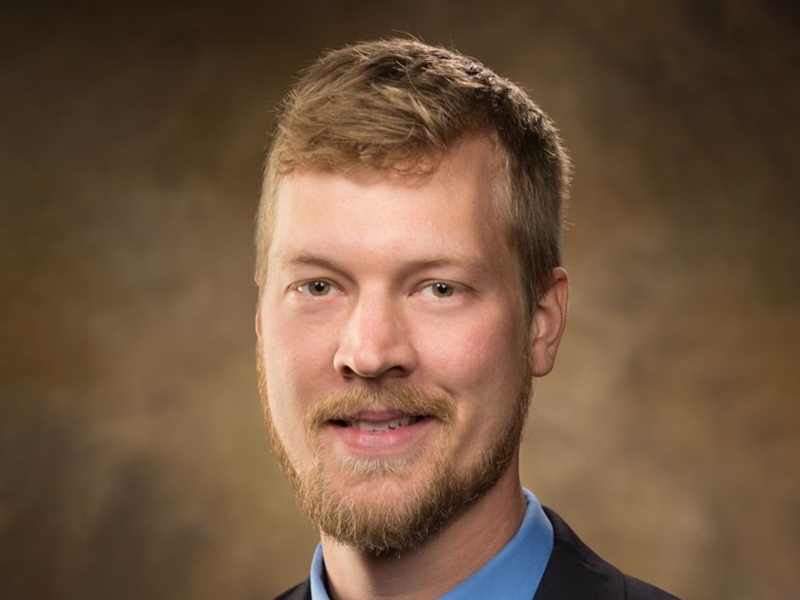David Huitink, associate professor of mechanical engineering, has been named director of the High-Density Electronics Center (HiDEC). This coincides with the reorganization of the center to be managed within the UA Power Group to provide a unified strategy in delivering R&D advancement in electronics engineering at the U of A.
Huitink joined the U of A in 2016 as an assistant professor. His research includes electronics thermal management, packaging and reliability.
HiDEC is a globally competitive core research and development facility that provides the tools, education and expertise to enable ground-breaking electronics research, prototyping and fabrication to meet academic and industrial needs. Established in 1991, the center provides a unique opportunity to small technology companies by providing access to its labs at reasonable hourly rates while providing undergraduate and graduate students with a hands-on approach to learning as they are exposed to state-of-the-art tools.
HiDEC has played a key role in the success of several technology-based startup companies. Among these are Space Photonics, Arkansas Power Electronics International, Ozark Integrated Circuits and Missionshire.
The center has also been utilized by many large companies as well, providing them an opportunity to perform low-volume prototyping, scientific studies and even failure analysis of some of their products. Among these enterprises are Toyota, Wolfspeed, Rohm Semiconductor, Texas Instruments, Northrop Grumman, the former United Technologies (now Raytheon Technologies), Siemens and Honeywell.
According to Huitink, "The vision for HiDEC is to be a premier facility for electronics packaging and prototyping R&D, both regionally and nationally. This starts with ensuring quality outcomes for our users and maintaining and building our capabilities for electronics development. During the past few months, we've updated and refined our tool sets, and the HiDEC staff has done a great job in reorganizing our processes and equipment to streamline our production. In the coming weeks, we will publish more communications about research capabilities and new activities to help university research be successful and educate the next generation of engineers and researchers."
Alan Mantooth, executive director of the UA Power Group, said Huitink is a great fit as the new director of HiDEC.
"He brings energy, leadership and experience to the position that will benefit the team. We are excited to see his vision for the center come to fruition," he said. "Bringing HiDEC under the UA Power Group umbrella will promote a more consistent and comprehensive electronics infrastructure that will result in more and better research, along with an overall modernization of HiDEC."
Huitink plans to extend HiDEC's outreach by offering technical workshops and training events. "We want to help our users (both internal and external partners) achieve the greatest success in our facilities. We're excited to offer a new series of training camps that will help our users be more knowledgeable and successful in their electronics manufacturing activities. This fits into the general vision for workforce development, but also serves to enhance the research outcomes of our partners. Our first training, Soldering and Surface Mount Technology, will be offered over fall break," Huitink stated.
Huitink's long-term plan is to revitalize not only the facilities, but the research output of HiDEC itself. "We want HiDEC to be much more than a user facility. We want it to be a research institute for electronics packaging," Huitink said. "The time has never been more perfect for this, as we have entered the 'CHIPS Act' era in the US, where domestic production of electronics technology is at the forefront of the economic and security agenda in Washington, D.C. Tech employers are hungry for our graduates who are going on to do amazing things in industry following their training at the University of Arkansas."
Huitink and Mantooth together see HiDEC, NCREPT and the currently under construction MUSiC facilities as a critical mass in defining the future of electronics. Huitink said, "This research ecosystem provides us a world-leading capacity for advancing next generation electronics technology, and it is an incredible time to be at the University of Arkansas."
Topics
Contacts
Karin Alvarado, marketing, communication and event management
Department of Electrical Engineering and Computer Science
479-575-4958,
Jennifer P. Cook, director of communications
College of Engineering
479-575-5697,
